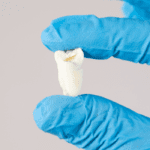It often goes unsaid, but one’s oral status can provide useful signs about the condition of their overall health. Some oral problems can affect the rest of the body because oral health and overall health are directly connected to one another. In this article, you will learn how your oral and dental issues are not just limited to your mouth.
What Is the Link Between Oral Health and Overall Health?
Your mouth is not separate from the rest of your body — it is just as overrun with mostly harmless bacteria; however, it is the main entrance for food that makes its way down to your digestive and respiratory systems, providing easy access for disease-causing organisms.
If you take good care of your oral health, your body’s natural defenses can keep harmful bacteria at bay. With poor oral hygiene, however, foreign organisms can easily invade and open doors for serious oral infections, such as gum disease.
There are multiple other ways for bacteria to enter your system as well. Your mouth uses saliva to wash away food and keep acids in check, protecting it from microbes that may lead to oral issues, but certain medications can reduce saliva production, leading to the potential development of some diseases.
How Can Gum Disease Affect Overall Health?
One of the most common dental issues that may affect your overall health is gum disease. Here are some of the symptoms you need to look out for:
- Tender gums that hurt when brushing
- Bleeding gums when flossing or brushing
- Bad breath
- Receding gums
If you notice any of these symptoms, seek professional advice from a dentist. Additionally, if you do or have developed gum disease, mention it to your physician so they may monitor your body for any unwanted side-effects.
Your oral health must regularly be tracked to make sure you are getting the care and treatment you need. According to the Blue Cross Blue Shield Association’s Health of America, people who have gum disease are more likely to suffer from heart disease. They also state that poor oral health can cut a person’s life expectancy by up to 1.7 years. This is one way to show how poor oral hygiene affects your health.
Health Conditions That Can Be Linked to Oral Health
If you want to understand the oral health and overall health connection, it is advantageous to be equipped with the knowledge of health conditions that can be traced back to oral health.
Endocarditis
Endocarditis is an infection of the inner lining of the heart valves, also known as the endocardium. It usually occurs when bacteria from the mouth and other parts of your body spread through the bloodstream and attach themselves to the heart.
Osteoporosis
Osteoporosis is a condition where the body has difficulty producing calcium, weakening the bones and leading to potential bone and tooth loss.
Cardiovascular Disease
The connection between cardiovascular disease and oral health may not be fully understood, but research shows that clogged arteries, strokes, and other heart diseases are linked to infections rooted from oral bacteria.
Diabetes
Diabetes is a serious condition that lowers one’s bodily protection from infectious diseases, putting diabetic people at higher risk of developing gum disease, which then impairs control over their blood sugar levels.
Birth Complications
Birth complications, such as premature birth and low birth weight, have been linked directly to periodontitis.
Pneumonia
Some bacteria that enters your mouth can make its way to your lungs, causing pneumonia and difficulty in breathing.
Alzheimer’s Disease
Patients who suffer from Alzheimer’s disease have been known to have poor oral health as the condition progresses.
AIDS
People inflicted with AIDS are more likely to develop oral problems, such as mucosal lesions.
Other conditions that may be linked to oral health are eating disorders, arthritis, cancer, and immune system disorders. If you are experiencing any of the conditions mentioned above, it is best to give your dentist a heads-up about the medications you take to help both your oral health and overall health.
How To Protect Your Oral Health
To protect your oral health, it is important that you practice good oral hygiene:
- Brush your teeth twice a day.
- Floss regularly.
- Use mouthwash after brushing to remove any food particles that may be left behind after brushing.
- Maintain a healthy diet and avoid sugar-rich food.
- Replace your toothbrush at least every three months or as soon as the bristles wear out.
- Visit your dentist regularly.
- Avoid tobacco.
Taking care of your oral health is important to your overall health because the link between oral health and overall health is closer than you’d think. That is why it is important that you find the right dentist to take care of your dental wellness. At Advanced Dental Group, we will connect you with the most qualified dentist in your area. Call us today!





